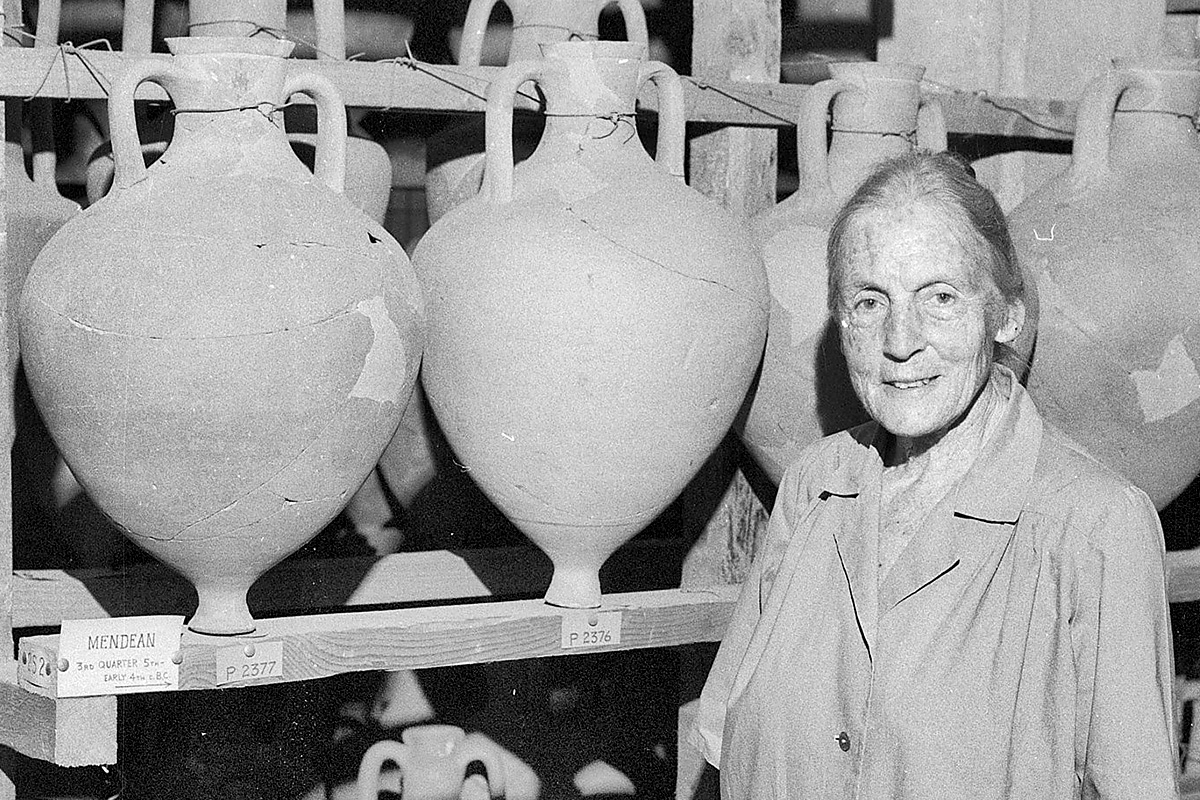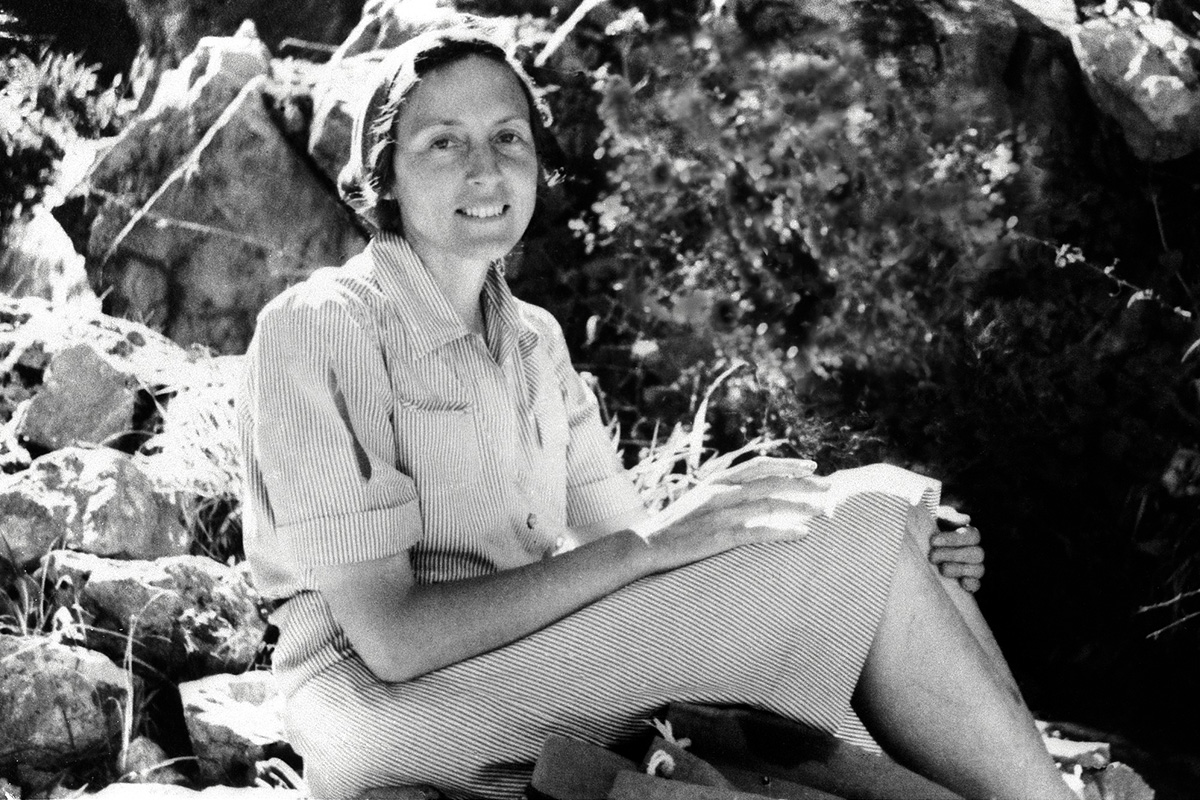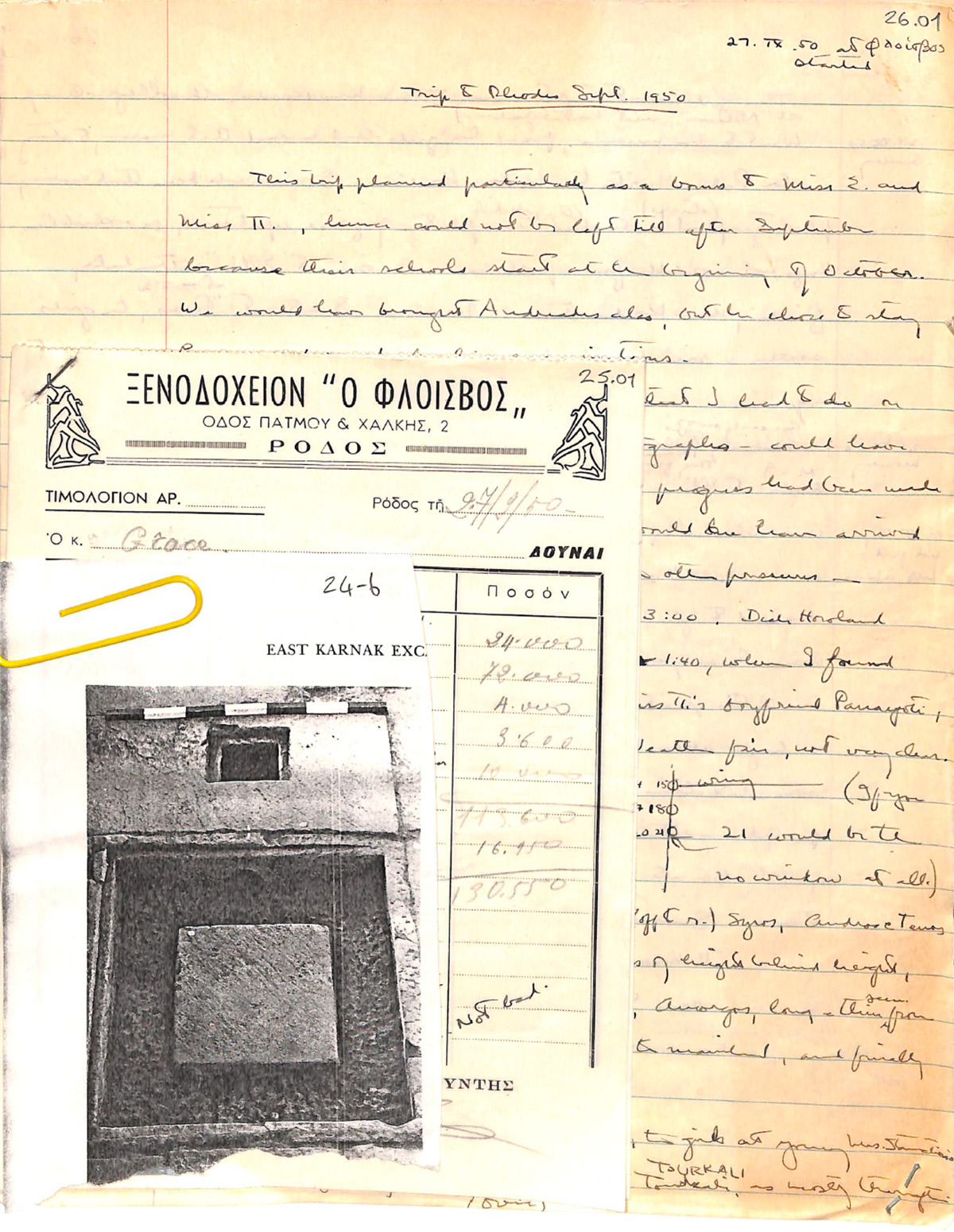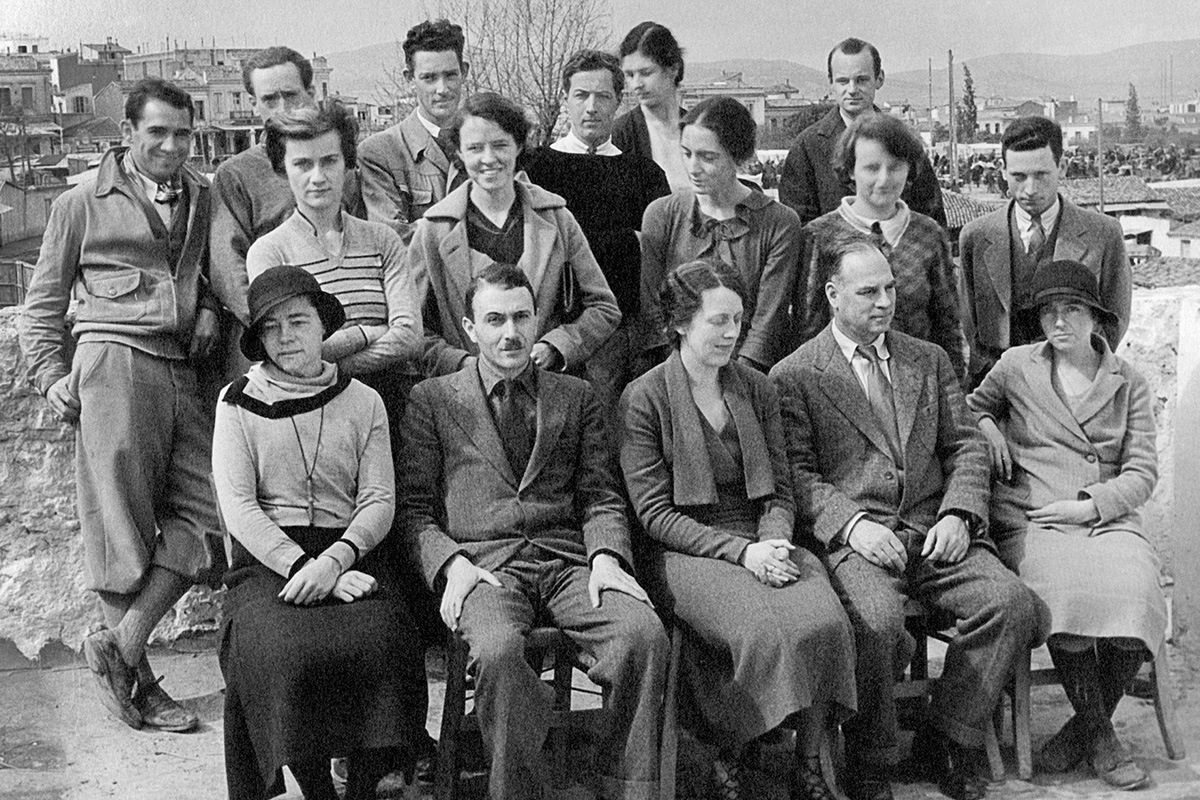Friends of Virginia Grace
Virginia Randolph Grace is best known for her lifelong study of amphoras from the Agora. She left behind a remarkable legacy—files consisting of several hundred thousand “records” of the stamps used on ancient wine and oil amphoras from sites in the Mediterranean world, particularly in the Hellenistic period. As a result of this work, amphoras and their stamped handles are now useful as a tool for closely dating archaeological contexts and serve as a primary indicator for tracing and understanding ancient trade in the Mediterranean.
Virginia Grace with amphoras at the Agora.
Her Life and Legacy
Virginia Grace was born in New York City in 1901. Graduating from Bryn Mawr College in 1922, she attended the American School of Classical Studies in Athens in 1927 and returned to Bryn Mawr to pursue her M.A. in Classical Archaeology. In 1930 she returned to Asia Minor to excavate Pergamon and Halai as well as tombs at Lapithos in Cyprus, and became a fellow of the Agora Excavations in 1932, an affiliation that was to last her lifetime. She completed her Ph.D. at Bryn Mawr in 1934 publishing the stamped amphora handles at the Athenian Agora. In 1935 she worked on the Bryn Mawr Tarsus excavations. During World War II she was appointed a visiting scholar at the Institute for Advanced Study at Princeton, and in 1938 she won a Guggenheim that allowed her to travel and study other stamped amphora collections. She received a second Guggenheim and again worked on the Kourion excavations in Cyprus. During the war she took on many roles with the U.S. State Department and worked with the O.S.S. Greek Affairs offices in Istanbul, Izmir and Cairo.
Virginia Grace in Turkey during World War II.
From 1945 to 1948, Virginia Grace again was a visiting scholar at the Institute for Advanced Study continuously working on the stamped jar handles, and she then returned to Greece to classify the stamped handles in the Athens National Museum and worked on Rhodian material under the French at Delos. With the aid of the American Research Center in Egypt and the American Philosophical Society she published the Benaki collection of Alexandria. A return to Athens where in the 50s and 60s the Stoa of Attalos was opened for a museum for the Agora excavations, Grace presided over her vast stamped jar handle collections and became in great demand as a consultant for many excavators. In 1989 she was recognized by the Archaeological Institute of America that awarded her the Gold Medal for Archaeological Achievement. Virginia Grace passed away at her home in Athens on May 22, 1994.
Biographical note borrowed from Breaking Ground: Women in Old Archaeology available at this link.
Virginia Grace's notes.
Make a Gift
Please consider making a contribution to help recognize Virginia Grace's incredible impact on archaeology and her commitment to the American School. Your gift is tax deductible, so click the link below to make a donation today (enter "Virginia Grace" in the "In Memory of” section). Thank you for your generous support!
Agora Excavations staff in 1933. Third row (left to right): Charles Spector, Piet de Jong, Arthur Parsons, Eugene Vanderpool, Mary Zelia Pease [Philippides], James Oliver. Second row: Joan Bush [Vanderpool], Elizabeth Dow, Virginia Grace, Gladys Baker, Homer Thompson. Sitting: Lucy Talcott, Benjamin Meritt, Josephine Shear, T. Leslie Shear, Dorothy Burr [Thompson].




